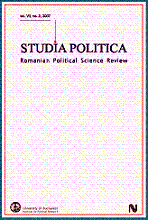Goulash Justice for Goulash Communism? Explaining Transitional Justice in Hungary
Goulash Justice for Goulash Communism? Explaining Transitional Justice in Hungary
Author(s): Lavinia StanSubject(s): Politics / Political Sciences
Published by: Editura Universităţii din Bucureşti
Keywords: perpetrators; communism; human rights; lustration; transitional justice
Summary/Abstract: Since 1989 some Eastern European countries have chosen to forgive and forget while others have opted to punish and prosecute the perpetrators of communist- era human rights abuses. Hungary is the only country that took the middle road, effecting limited transitional justice in the key areas of lustration, public access to secret political police archives, and court prosecution of former communist leaders and secret spies. As this article contends, the country was bound to resist efforts at radical de-communization due to its mild communist regime, its negotiated transition, and conciliatory, if unstable, post-communist politics. The article presents the organization and evolution of the Hungarian secret state security structures, the key transitional justice legislation, the political bargaining that shaped lustration and file access, and the way public scandals and uncontrolled release of sensitive information have rocked the Hungarian political life.
Journal: Studia Politica. Romanian Political Science Review
- Issue Year: 7/2007
- Issue No: 2
- Page Range: 269-291
- Page Count: 23
- Language: English

